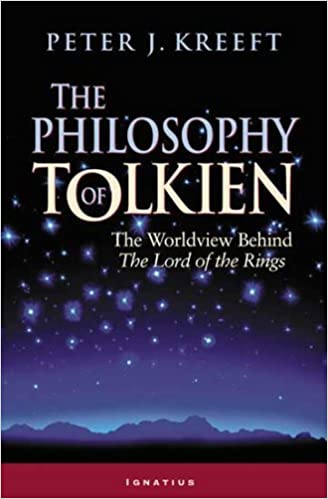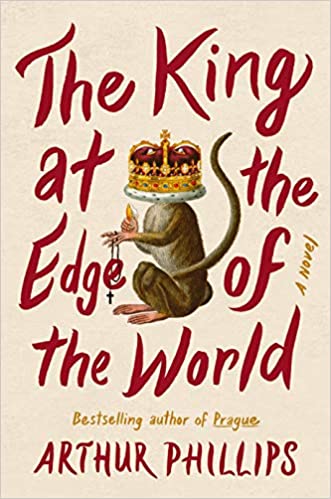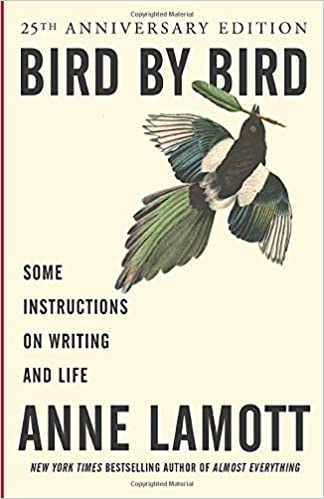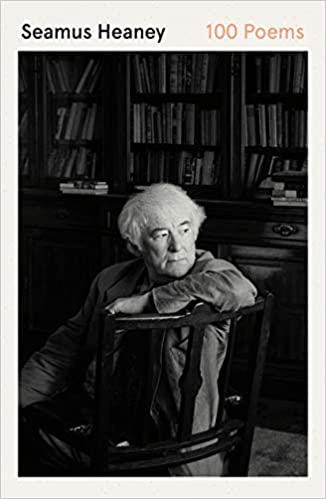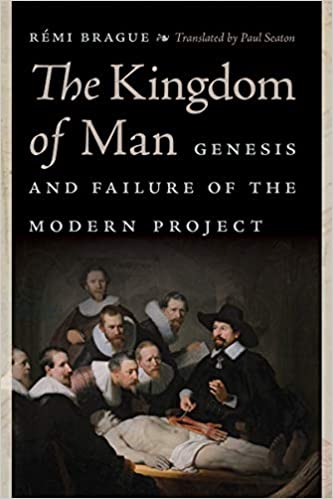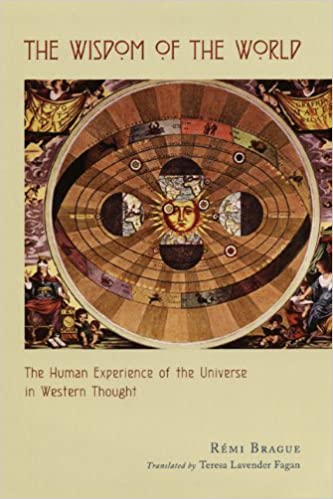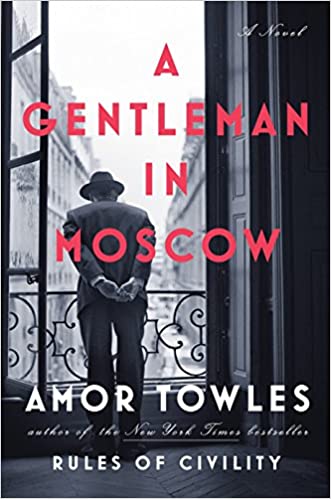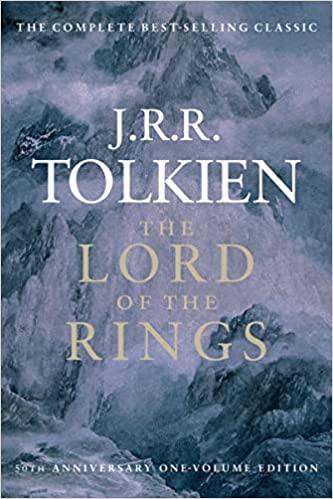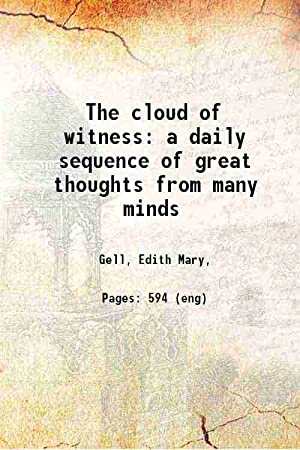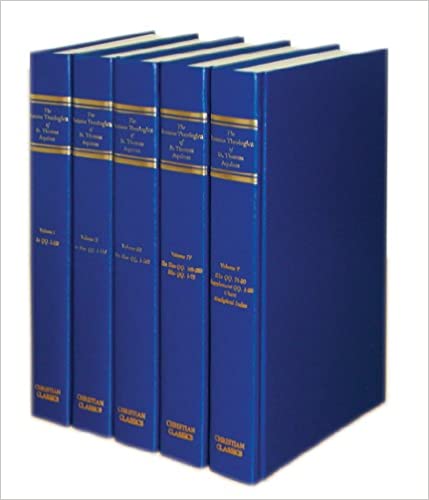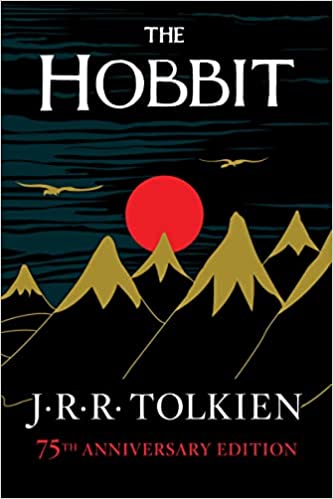Guest Picks
The Philosophy of Tolkien: The Worldview Behind The Lord of the Rings
While nothing can equal or replace the adventure in reading Tolkien’s masterwork, The Lord of the Rings, Peter Kreeft says that the journey into its underlying philosophy can be another exhilarating adventure.
Thus, Kreeft takes the reader on a voyage of discovery into the philosophical bones of Middle earth. He organizes the philosophical themes in The Lord of the Rings into 50 categories, accompanied by over 1,000 references to the text of Lord.Since many of the great questions of philosophy are included in the 50-theme outline, this book can also be read as an engaging introduction to philosophy. For each of the philosophical topics in Lord, Kreeft presents tools by which they can be understood. Illustrated.
The King at the Edge of the World: A Novel
Queen Elizabeth’s spymasters recruit an unlikely agent—the only Muslim in England—for an impossible mission in a mesmerizing novel from “one of the best writers in America” (The Washington Post)
“Evokes flashes of Hilary Mantel, John le Carré and Graham Greene, but the wry, tricky plot that drives it is pure Arthur Phillips.”—The Wall Street Journal
NAMED ONE OF THE BEST BOOKS OF THE YEAR BY THE NEW YORK TIMES BOOK REVIEW AND THE WASHINGTON POST
The year is 1601. Queen Elizabeth I is dying, childless. Her nervous kingdom has no heir. It is a capital crime even to think that Elizabeth will ever die. Potential successors secretly maneuver to be in position when the inevitable occurs. The leading candidate is King James VI of Scotland, but there is a problem.
The queen’s spymasters—hardened veterans of a long war on terror and religious extremism—fear that James is not what he appears. He has every reason to claim to be a Protestant, but if he secretly shares his family’s Catholicism, then forty years of religious war will have been for nothing, and a bloodbath will ensue. With time running out, London confronts a seemingly impossible question: What does James truly believe?
It falls to Geoffrey Belloc, a secret warrior from the hottest days of England’s religious battles, to devise a test to discover the true nature of King James’s soul. Belloc enlists Mahmoud Ezzedine, a Muslim physician left behind by the last diplomatic visit from the Ottoman Empire, as his undercover agent. The perfect man for the job, Ezzedine is the ultimate outsider, stranded on this cold, wet, and primitive island. He will do almost anything to return home to his wife and son.
Arthur Phillips returns with a unique and thrilling novel that will leave readers questioning the nature of truth at every turn.
More info →100 Poems
In 100 Poems, readers will enjoy the most loved and celebrated poems, and will discover new favorites, from "The Cure at Troy" to "Death of a Naturalist." It is a singular and welcoming anthology, reaching far and wide, for now and for years to come.
Seamus Heaney had the idea to make a personal selection of poems from across the entire arc of his writing life, a collection small yet comprehensive enough to serve as an introduction for all comers. He never managed to do this himself, but now, finally, the project has been returned to, resulting in an intimate gathering of poems chosen and introduced by the Heaney family. No other selection of Heaney’s poems exists that has such a broad range, drawing from the first to the last of his prizewinning collections.
More info →Range: Why Generalists Triumph in a Specialized World
Plenty of experts argue that anyone who wants to develop a skill, play an instrument, or lead their field should start early, focus intensely, and rack up as many hours of deliberate practice as possible. If you dabble or delay, you’ll never catch up to the people who got a head start. But a closer look at research on the world’s top performers, from professional athletes to Nobel laureates, shows that early specialization is the exception, not the rule.
David Epstein examined the world’s most successful athletes, artists, musicians, inventors, forecasters and scientists. He discovered that in most fields—especially those that are complex and unpredictable—generalists, not specialists, are primed to excel. Generalists often find their path late, and they juggle many interests rather than focusing on one. They’re also more creative, more agile, and able to make connections their more specialized peers can’t see.
Provocative, rigorous, and engrossing, Range makes a compelling case for actively cultivating inefficiency. Failing a test is the best way to learn. Frequent quitters end up with the most fulfilling careers. The most impactful inventors cross domains rather than deepening their knowledge in a single area. As experts silo themselves further while computers master more of the skills once reserved for highly focused humans, people who think broadly and embrace diverse experiences and perspectives will increasingly thrive.
More info →The Wisdom of the World: The Human Experience of the Universe in Western Thought
When the ancient Greeks looked up into the heavens, they saw not just sun and moon, stars and planets, but a complete, coherent universe, a model of the Good that could serve as a guide to a better life. How this view of the world came to be, and how we lost it (or turned away from it) on the way to becoming modern, make for a fascinating story, told in a highly accessible manner by Rémi Brague in this wide-ranging cultural history.
Before the Greeks, people thought human action was required to maintain the order of the universe and so conducted rituals and sacrifices to renew and restore it. But beginning with the Hellenic Age, the universe came to be seen as existing quite apart from human action and possessing, therefore, a kind of wisdom that humanity did not. Wearing his remarkable erudition lightly, Brague traces the many ways this universal wisdom has been interpreted over the centuries, from the time of ancient Egypt to the modern era. Socratic and Muslim philosophers, Christian theologians and Jewish Kabbalists all believed that questions about the workings of the world and the meaning of life were closely intertwined and that an understanding of cosmology was crucial to making sense of human ethics. Exploring the fate of this concept in the modern day, Brague shows how modernity stripped the universe of its sacred and philosophical wisdom, transforming it into an ethically indifferent entity that no longer serves as a model for human morality.
Encyclopedic and yet intimate, The Wisdom of the World offers the best sort of history: broad, learned, and completely compelling. Brague opens a window onto systems of thought radically different from our own.
More info →A Gentleman in Moscow
In 1922, Count Alexander Rostov is deemed an unrepentant aristocrat by a Bolshevik tribunal, and is sentenced to house arrest in the Metropol, a grand hotel across the street from the Kremlin. Rostov, an indomitable man of erudition and wit, has never worked a day in his life, and must now live in an attic room while some of the most tumultuous decades in Russian history are unfolding outside the hotel’s doors. Unexpectedly, his reduced circumstances provide him entry into a much larger world of emotional discovery.
Brimming with humor, a glittering cast of characters, and one beautifully rendered scene after another, this singular novel casts a spell as it relates the count’s endeavor to gain a deeper understanding of what it means to be a man of purpose.
More info →The Lord of the Rings
One Ring to rule them all, One Ring to find them, One Ring to bring them all and in the darkness bind them
In ancient times the Rings of Power were crafted by the Elven-smiths, and Sauron, the Dark Lord, forged the One Ring, filling it with his own power so that he could rule all others. But the One Ring was taken from him, and though he sought it throughout Middle-earth, it remained lost to him. After many ages it fell by chance into the hands of the hobbit Bilbo Baggins.
From Sauron's fastness in the Dark Tower of Mordor, his power spread far and wide. Sauron gathered all the Great Rings to him, but always he searched for the One Ring that would complete his dominion.
When Bilbo reached his eleventy-first birthday he disappeared, bequeathing to his young cousin Frodo the Ruling Ring and a perilous quest: to journey across Middle-earth, deep into the shadow of the Dark Lord, and destroy the Ring by casting it into the Cracks of Doom.
The Lord of the Rings tells of the great quest undertaken by Frodo and the Fellowship of the Ring: Gandalf the Wizard; the hobbits Merry, Pippin, and Sam; Gimli the Dwarf; Legolas the Elf; Boromir of Gondor; and a tall, mysterious stranger called Strider.
More info →The Cloud of Witness ~ A Daily Sequence of Great Thoughts from Many Minds following the Christian Seasons
Over one thousand quotes, scripture verses, and poetry selections are included in this sweet-sized devotional (4"x6") that will help inspire and guide you throughout the year. The Cloud of Witness is a high-quality reprint of the 1891 edition compiled by Edith Gell. It is a durable heirloom book printed in grayscale and housed in a rich coated-linen cover with a golden bookmark to hold your place. Each week a different theme is highlighted with selections from such luminaries as George MacDonald, William Wordsworth, Lord Tennyson, William Shakespeare, Ralph Waldo Emerson and others. A fresh forward has been added by Nancy Kelly of Sage Parnassus which elucidates Charlotte Mason’s use of this book as a gift to her House of Education graduates. In addition, a high-quality color image of Holman Hunt’s The Light of the World replaces the black and white image from the 1st edition. This thoughtful volume will comfort and guide anyone who wishes to meditate on the many truths found between the covers as well as make a perfect gift that will last a lifetime. We at Riverbend Press were very happy to work with Nancy Kelly on this project. Nancy had a vision for this wonderful little book and together we were able to make it a reality. We are pleased to add it to our growing list of Charlotte Mason books and look forward to future Charlotte Mason-related projects with Nancy involving books and other beautiful things.
More info →The Summa Theologica of St. Thomas Aquinas
The Summa Theologica, St. Thomas Aquinas' brilliant synthesis of Christian thought, has had a decisive and permanent impact on philosophy and religion since the thirteenth century. As the title indicates, is a summing up of all that can be known about God and humanity's relations with God. Divided into three parts, the work consists of 38 tracts, 631 questions, about 3000 articles, 10,000 objections and their answers. This complete edition of the work, published in five volumes, was translated into English by the Fathers of the Dominican Province and first appeared in 1911. A revised edition was published in London in 1920, and in America in 1947. The Christian Classics edition is a reproduction of the 1947 Benziger Brothers edition.
More info →The Hobbit
A great modern classic and the prelude to The Lord of the Rings. Bilbo Baggins is a hobbit who enjoys a comfortable, unambitious life, rarely traveling any farther than his pantry or cellar. But his contentment is disturbed when the wizard Gandalf and a company of dwarves arrive on his doorstep one day to whisk him away on an adventure. They have launched a plot to raid the treasure hoard guarded by Smaug the Magnificent, a large and very dangerous dragon. Bilbo reluctantly joins their quest, unaware that on his journey to the Lonely Mountain he will encounter both a magic ring and a frightening creature known as Gollum.
More info →
